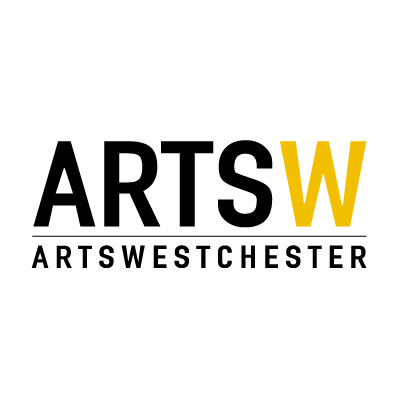Pelham Juneteenth Interview with Emlyn Taveras and Jeff Watkins
Excerpt from an interview with Emlyn Taveras and Jeff Watkins conducted by Niara Jordan.
Niara: What was the start of bringing your Juneteenth celebration to life? Where did planning start?
Jeff: Planning started with the Village of Pelham Council of the Arts. It was an initiative that we talked about and wanted to see. We had set the vision forth and wanted to make sure we executed so we could see that possibility actually come into a reality— that the village would have its first Juneteenth celebration, especially off the back of several weeks of protests, vigils and rallies after the George Floyd murder. It was definitely in the spirit and the consciousness of everybody. Being one of the leaders of some of those vigils and rallies, it was definitely in mind. And were definitely going to celebrate Juneteenth. “Hook a crook” like my dad would say.
Niara: Emlyn, did you wanna say anything at all to that?
Emlyn: This was the first community program that the Council of the Arts organized, and it was our priority to kick off with this real celebration of freedom and public art. This powerful event was about coming together in support of all humanities, and doing it through education, through arts, through organizing and having a good time together. It was our first Juneteenth celebration and I think that it was successful because there was a real urgency to come together, especially for the town of Pelham but also in the spirit of the work that brought together a lot of folks in the community during the vigils. I think it was driven from a lot of different sources and it turned out great because of it.
Niara: Yes. I love that the city’s showing out. I saw a video on Facebook where there was artwork tied to trees, on the ground. That was really, really cool!
Jeff: I grew up in Mount Vernon as well. Since I was a kid I never had a relationship with Pelham, so it was definitely something I was going change up over here. We started talking about it—even during the vigils and the rallies that we had. A lot of people turned out. There were a lot of folks that were surprising to me. Very surprising.
Niara: I went to New Rochelle and then Croton on Hudson and the turnout was incredible for both. I said, “Yeah, as we should. We should show up for ourselves!” And for all the Black people that we know that exist globally. It’s not just one voice you’re speaking of, you’re speaking up for a lot. And it’s good that we’re also celebrating ourselves too. That’s important.
Jeff: For sure. Emlyn tells me that was her idea, being an arts educator here— she’s the one that saw the whole art exhibit. I got together the drummers and dancers – my cousin and their tribe, spoken word artists, and different speakers. It was a good turnout and a really good event.
Niara: What do you feel was unique about the program that you put together?
Emlyn: I think what was important for us was to make sure that we engaged the young people in the dialogue of creating this event and making something that was really focused on the arts, Black culture, and a celebration prioritizing dialogue of these things. I’m an educator and an artist in the community and was fortunate enough to work with a lot of local high schoolers. They were offered the opportunity to create pieces of art to celebrate this moment— the very first Juneteenth, their own experiences with Juneteenth and it becoming a national holiday. We educated one another, asking questions that were important for them, gaining the knowledge and the responsibility of representing this moment through their art.
And I was shocked! I had 32 pieces of art to exhibit. It was important to create an environment where the art lends itself to the experience of rededicating this space to this moment, especially because the vigils had just taken place. Some of the artwork was exhibited on trees and some on the ground. It was really interactive. All of the artists wanted to be anonymous. That was important for them, in terms of the unity of representing this moment. We had live painters. I think that young people were really dedicated to participating.
I had a lot of volunteers donate their time. There was a portion of the program where these young people created three big live paintings. There was definitely a level of celebration– within the youth support, education and engaging in public art together. I found that to be really powerful, along with the performances, the artists and just the excitement of it all.
Jeff: What made it unique was the art. It spread across so many different mediums of communication and expression. We had films going on with the picture house, interactive art with artists, music, dance, spoken word and speech. All these different mediums happening all in the same event. We had a sculpture dedicated that’s still standing in the park. There are a lot of things that are happening with immediacy, but also things that are longer standing, like that sculpture.
Emlyn: [The sculptor] was an artist named Musa Hickson and he worked with the Pelham Arts Center to see this vision through. He created this steel blooming flower, called the ‘Conversation Sculpture’, to engage in dialogue in public spaces. It’s this blooming flower with benches inside and was appropriate for the moment. You had people who were in the event engaging with this piece of art that was dedicated on this day– that was pretty powerful.
Niara: Yes, you did that, you should be very proud of yourselves! You’re definitely setting the tone for future generations. It’s a great example– and it’s fun.
Jeff: It was, it definitely was.
Niara: Are there any Juneteenth plans for this year and if so, what are they?
Jeff: Oh, it’s going to be bigger and better. We’re going to incorporate pretty much everything we had last year with the different forms of mediums, but more. Especially more performers, more artists from a wider range. Also supporting Black businesses with different vendors and food trucks. We’re going to block off the streets to have a marketplace. It’s just bigger and better.
Emlyn: I think the important part of this coalition is this idea of really unifying our communities, how can we really engage one another. Whether we’re neighbors in Mount Vernon or we’re going to attend a White Plains event, I think that’s what’s so special about the coalition this year. I think it would be beautiful for a wide audience to participate in all the things that Jeff was saying; businesses, vendors, music and the arts, all the live stuff. I see it as a big collective. Bigger and better.
Niara: Yes, and please link us creatives here in Mount Vernon! Now that I know, I’m going to spread the word, cause bigger and better. We should be connected in Westchester. Come on, we’re neighbors! And lastly, did you get to learn about Juneteenth growing up? I’ll say at least in my set, we didn’t hear about it until after we graduated. What was it like for y’all?
Jeff: Me personally, I didn’t. I didn’t know about Juneteenth really until college. I linked up with some of my boys who were from Texas–about two or three of my best friends and they told me about it. I really didn’t even know anything about it growing up, not through the school system.
Emlyn: I think I’d have to agree with Jeff where I learned about it as a young adult, in college and as an educator. There’s the question of having BIPOC children and students and it’s almost like “Where are the conversations about Juneteenth and these moments in history?” I didn’t know enough about it. And even going into the school systems to try to have these dialogues with the students, I think it takes a real effort to expand on our knowledge of what history is. I think it’s a responsibility, and that’s why this moment’s so important.
Niara: And what does Juneteenth mean to you all personally?
Jeff: For me, it’s a celebration of overcoming. A celebration of achievement. A celebration of destiny.
Up until that point, the slaves supposedly talked about being freed or emancipated and they really didn’t know. I think it was a pivotal moment for me that celebrates that Black people and all people of color can overcome anything, have overcome atrocities and genocide, some of the most deplorable and evil acts of human history. And folks don’t want to put it that way, but it was. They still overcame it. We still didn’t let that hold us down even though in our minds and in God’s eyes, we are always free. But the oppressor, they couldn’t hold us down to not be free and not be at liberty. It’s motivational in that way, so we’re going to celebrate it. The beautiful thing about Juneteenth is all the Black folks in those communities, especially in Galveston, Texas and down south that unified, rallied and put on their show–everything together as a community. That’s very important for me.
Emlyn: I think that was beautiful, Jeff. I just needed a minute. It’s a big question because it means so many things, and it’s continuing to grow with things that we’re witnessing every single day in our own communities. The idea of what freedom looks like today and what it looked like before is ever evolving for our kids and ourselves. I think it’s important to really honor the true history. And through that, really celebrate all the progress of people making such incredible, incredible progress. [There is] still so much progress to be made in this world, but celebrating all of that. It’s about the unity and the hope that we attain or hold onto, share and connect with each other. There’s an urgency for the unity of this moment, celebrating where we are and making sure that we’re honoring our true history.
Niara: Absolutely, I agree. I hope to connect with you all in the future. The work that you’re doing in Westchester–please keep it up! It does not go unnoticed.

About ArtsWestchester
For more than 50 years, ArtsWestchester has been the community’s connection to the arts. Founded in 1965, it is the largest private not-for-profit arts council in New York State. Its mission is to create an equitable, inclusive, vibrant and sustainable Westchester County in which the arts are integral to and integrated into every facet of life. ArtsWestchester provides programs and services that enrich the lives of everyone in Westchester County. ArtsWestchester helps fund concerts, exhibitions and plays through grants; brings artists into schools and community centers; advocates for the arts; and builds audiences through diverse marketing initiatives. In 1998, ArtsWestchester purchased the nine-story neo-classical bank building at 31 Mamaroneck Avenue which has since been transformed into a multi-use resource for artists, cultural organizations and the community. A two-story gallery is located on the first floor of ArtsWestchester’s historic building on Mamaroneck Avenue. artsw.org
